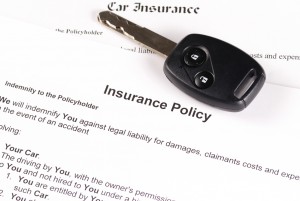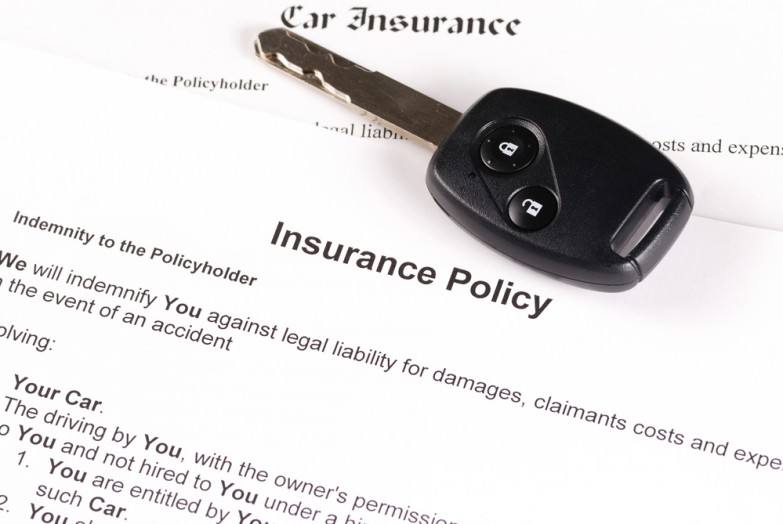Having adequate auto insurance is a necessary part of life. In just about every state, auto insurance is required for anyone who drives a car. The two basic choices for auto insurance are personal and commercial coverage. There are some major differences between these two types of coverage. It is important to know the features of each to obtain the best policy to fit your needs. Following are the differences between a commercial auto insurance policy and a personal auto insurance policy.
 Personal car insurance policy basics
Personal car insurance policy basics
Personal car insurance policies are intended to be used by individuals and families. Most states require people who drive cars or other non-commercial vehicles for personal reasons, such as going to a job, running errands, or taking kids to school, to carry personal auto insurance. The only state that does not require personal auto insurance is New Hampshire. Personal insurance policies are written by insurance companies to meet the specific needs of an everyday driver. The rates and other specific information are based on these needs.
Factors that affect personal car insurance
There are several factors that insurance companies look for when determining rates for drivers. Although some of them cannot be controlled, others can be. A driver should know the factors and alter any behaviors that can change from a negative to a positive. Examples of positive behaviors/factors include:
-Having a clean driving record
-Being over age 25
-Being married
-Living in a low-crime area
-Having an anti-theft device installed on the car
-Taking a defensive driving course
-Having good grades (for students)
Examples of negative behaviors/factors include:
-Being under age 25
-Being male
-Being single
-Having a poor driving record
-Living in a high-crime area
-Having a previous policy canceled due to non-payment
Coverage options
Personal auto insurance policies usually offer two types of coverage options, collision and comprehensive. Collision insurance goes into effect when there is a collision involving the policyholder’s car and another vehicle or object. Comprehensive insurance covers auto accidents as well as theft, vandalism, natural disasters, and other types of damage to the vehicle.
Non-personal use of the vehicle
Personal insurance policies do not cover a driver or vehicle if the automobile is being used for work purposes.
Commercial car insurance policy basics
Commercial car insurance policies are required for any company that uses commercial trucks or business vehicles. A commercial car insurance policy is held by the company and usually specifies the employees who are covered when driving the vehicle. It can also provide blanket coverage that allows any employee to drive a company vehicle. It is important that only people who are covered by the policy drive a company car because if someone who is not covered drives a company car and gets into an accident, both the company and the driver can be sued if he or she is found to be at fault.
Types of coverage
There are two types of coverage that make up a commercial auto policy are liability coverage and physical damage coverage. Liability insurance covers damage caused to another vehicle, someone else’s property, or bodily injury caused to another person if the fault lies with the driver of the company car. Physical damage insurance covers incidents of collision or theft of the company vehicle when it is being driven for company purposes.
Additional coverage options
Business owners can add extra coverage to their commercial auto insurance policies for an additional cost. Some of these options include uninsured motorists coverage, medical payments, and roadside assistance
Rate changes
Similarly to personal car insurance, there are factors that can affect the rates of the premium of a commercial insurance policy. For example, the more established a business is, the lower the rates will be. Other factors to consider are he number of accidents the company vehicles have been in and the hiring of responsible drivers. Plus, it is important to provide drivers of company cars with appropriate training
What about self-employment?
Someone who is self-employed might be unsure if personal or commercial auto insurance is needed. The answer is dependent on the type of work that is being done. If an individual works out of the home and does not often leave the house for business purposes likely does not need a commercial auto insurance policy. However, if the home-based business requires lots of business-related travel in the car, then a commercial policy would likely be necessary. This holds true even if the travel is confined to local areas. A good rule of thumb to follow is that if people goods or products are being transported, then a commercial policy is needed.
Understanding the primary use of your auto and understanding your insurance needs will help you determine if a personal or commercial auto insurance policy is best for you. If you have questions regarding auto insurance or would like a quote on either a personal or commercial policy, please contact an experienced local insurance agent to find out more.
Thank you for reading our blog. How can we help you? Contact us today.



